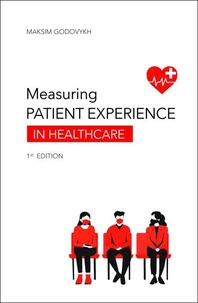Tourism is one of the globe's greatest contributors to economic growth, providing significant revenues, innumerable employment opportunities, and massive investment input to destination communities around the world. As tourism becomes an economic mainstay for many communities, local, regional, and national governments increasingly encourage and promote the arrival of ever greater numbers of visitors.
This increased visitation has significant impacts on the social, cultural, environmental, and psychological viability of destination communities, often adversely affecting the quality of life and well-being of residents. Current approaches to measuring the impacts of tourism often fail to account for its negative impacts and instead rely on metrics associated with tourist volumes, revenues, and taxes.
However, it is imperative to understand, measure, and improve the totality of economic, social, environmental, and psychological impacts of tourism. This book aims to introduce the knowledge, methods, measurement practices, and management tools necessary to explore and maximize the impacts of tourism development on residents' quality of life, health, and well-being in different types of tourist destinations.
The book consists of four main chapters. The first chapter introduces the foundations of tourism, discussing the tourism phenomenon in general, providing definitions of tourism, exploring the evolution of tourism development, supply and demand, tourism competitiveness, the complexity of modern tourism systems, and global issues. The second chapter examines the economic, political, social, environmental, health, and psychological impacts of tourism, as well as the phenomenon of overtourism.
The third chapter is devoted to existing and emerging methodologies for evaluating tourism impacts, including different research approaches and examples, the collection of secondary and primary data, data analysis and visualization, and developing recommendations for tourism bodies and the management of tourism destinations. The fourth chapter discusses different opportunities to influence the impacts of tourism, concluding with the issues of sustainability, destination resilience, developing destination strategies, and applying behavioral insights in destination management and tourism policies.
This book intends to contribute to tourism knowledge and practice through conceptualization, operationalization, and a call to explore the economic, social, environmental, and psychological impacts of tourism development on local communities. The described research methods and evaluation techniques aim to transform tourism statistics and tourism research in favor of local citizens and provide new opportunities for measuring the effects of tourism development on residents of tourist destinations.
The book chapters can be used as guidance for students, tourism practitioners, destination managers, and governmental authorities. By examining the economic, social, environmental, and psychological impacts of tourism and applying the methods, models, and recommendations presented in this book, managers and policymakers may more effectively improve the quality of life, health, and well-being of residents in local, regional, and national tourist destinations worldwide.
Tourism is one of the globe's greatest contributors to economic growth, providing significant revenues, innumerable employment opportunities, and massive investment input to destination communities around the world. As tourism becomes an economic mainstay for many communities, local, regional, and national governments increasingly encourage and promote the arrival of ever greater numbers of visitors.
This increased visitation has significant impacts on the social, cultural, environmental, and psychological viability of destination communities, often adversely affecting the quality of life and well-being of residents. Current approaches to measuring the impacts of tourism often fail to account for its negative impacts and instead rely on metrics associated with tourist volumes, revenues, and taxes.
However, it is imperative to understand, measure, and improve the totality of economic, social, environmental, and psychological impacts of tourism. This book aims to introduce the knowledge, methods, measurement practices, and management tools necessary to explore and maximize the impacts of tourism development on residents' quality of life, health, and well-being in different types of tourist destinations.
The book consists of four main chapters. The first chapter introduces the foundations of tourism, discussing the tourism phenomenon in general, providing definitions of tourism, exploring the evolution of tourism development, supply and demand, tourism competitiveness, the complexity of modern tourism systems, and global issues. The second chapter examines the economic, political, social, environmental, health, and psychological impacts of tourism, as well as the phenomenon of overtourism.
The third chapter is devoted to existing and emerging methodologies for evaluating tourism impacts, including different research approaches and examples, the collection of secondary and primary data, data analysis and visualization, and developing recommendations for tourism bodies and the management of tourism destinations. The fourth chapter discusses different opportunities to influence the impacts of tourism, concluding with the issues of sustainability, destination resilience, developing destination strategies, and applying behavioral insights in destination management and tourism policies.
This book intends to contribute to tourism knowledge and practice through conceptualization, operationalization, and a call to explore the economic, social, environmental, and psychological impacts of tourism development on local communities. The described research methods and evaluation techniques aim to transform tourism statistics and tourism research in favor of local citizens and provide new opportunities for measuring the effects of tourism development on residents of tourist destinations.
The book chapters can be used as guidance for students, tourism practitioners, destination managers, and governmental authorities. By examining the economic, social, environmental, and psychological impacts of tourism and applying the methods, models, and recommendations presented in this book, managers and policymakers may more effectively improve the quality of life, health, and well-being of residents in local, regional, and national tourist destinations worldwide.

 , qui est-ce ?
, qui est-ce ?